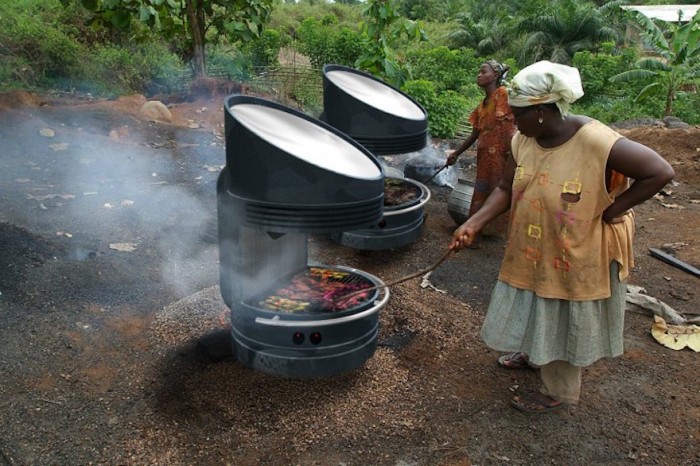
Informal settlements in developing countries have to rely on open wood and charcoal fires or paraffin stoves to prepare their daily meals. There are a number of problems associated with these methods of cooking including fire hazard risks, rising deforestation and health issues related to excessive smoke inhalation.
MIT professor David Wilson proposed a solution with Wilson Solar Grill, a cooker that stores solar energy for cooking at any time of the day.
The invention was inspired by a trip to Nigeria. The professor was confronted with the numerous issues surrounding wood fire cooking in rural areas. The grill harnesses power from the sun and stores it to provide high-heat cooking (up to 200 degrees celsius) for a duration of 25 hours.
The technology behind the grill consists of a compact lens used to concentrate sunlight onto a thermal battery made up of molten salts, which retain heat. During the day, the heat is stored and when the sun starts to disappear, the lens is substituted for a cover that keeps the molten salts piping hot for up to six hours. Cooking is as simple as opening the cover and placing food on the grill.
Since Wilson came up with the solar grill, he has received backing from charity TATA Trust for two years of testing the product in India. More recently, the technology has also inspired a group of MIT students to develop their own prototype and launch a business to manufacture and distribute their grills.
More on solar powered deisgns:
Robotic traffic officers direct cars on Kinshasa's roads | Design Indaba
In the Democratic Republic of Congo's capital, Kinshasa, robot traffic officers are commonplace. In the capital, where the roads are jam-packed, pedestrians are in danger and drivers defy the rules of the road. Authorities felt that they needed an innovative intervention to tackle this problem because traffic officers were falling short.






